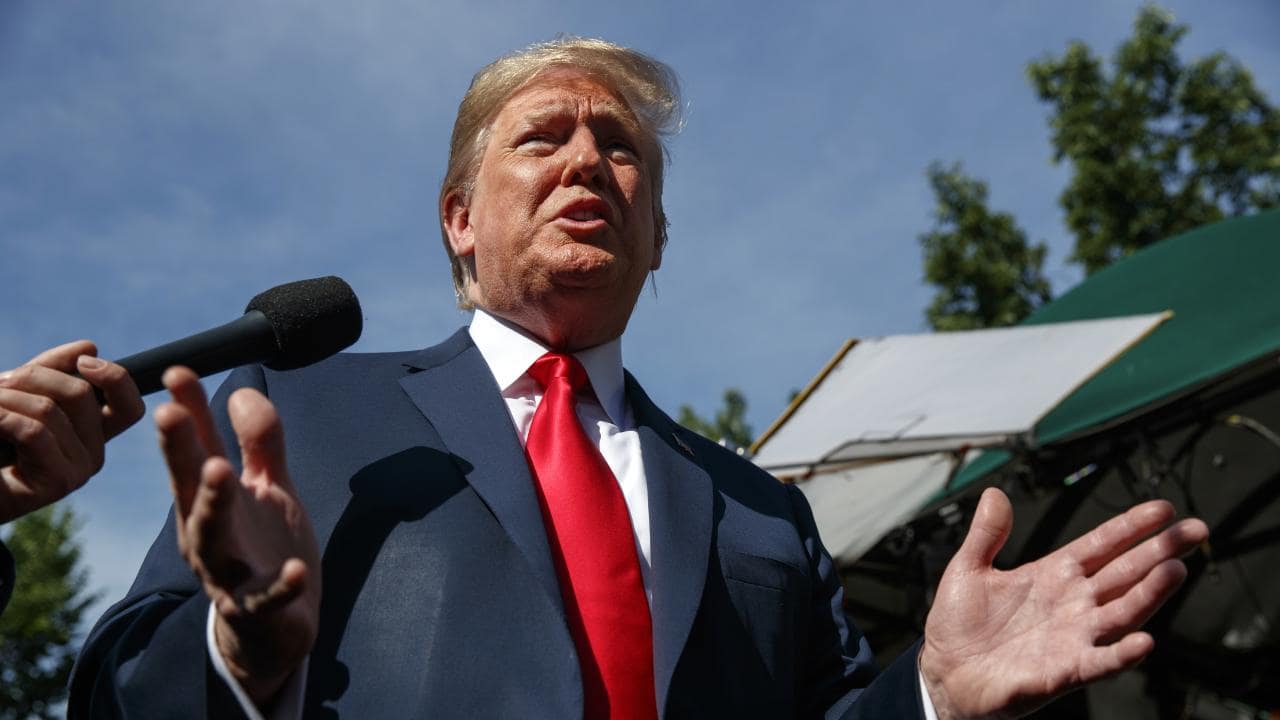Angered and frustrated over his failure to stem domestic pressure with his North Korea summit, Donald Trump confirms tariffs on $50 billion of Chinese goods.
The duties are part of a threatened US trade war across the globe, less than a week after Trump tore apart the G7 summit amid his steel and aluminum tariffs on allies such as Canada and the European Union and as the Administration is talking about the dissolution of the North American Free Trade Agreement.
Trump announced the tariffs in an impromptu conference with reporters on the White House South Lawn on Friday morning, amid his railing against the FBI and the Trump-Russia investigation and his desire that the American people stand to attention for him as North Koreans do for leader Kim Jong-un.
Politically, Trump has tried to cultivate an image of his personal leadership with his praise of Chinese leader Xi Jinping, but on the economic front, he has used China as a foil to whip up support for his “America First” protectionism. He said on Friday that trade between the US and China had been “very unfair, for a very long time”: “These tariffs are essential to preventing further unfair transfers of American technology and intellectual property to China, which will protect American jobs.”
The Administration first announced the intended tariffs in March, initially pointing at $50 billion of Chinese goods and then expanding the total to $200 billion. However, implementation was deferred during talks between American and Chinese officials. Treasury Secretary Steven Mnuchin said last month that the trade war was “on hold”, only to be pushed back within days by protectionist rivals within the White House.
The Office of the US Trade Representative said Friday that tariffs of 25% on about $34 billion of Chinese products — drawn from a list that the Administration published in April — will go into effect on July 6. The Administration is also proposing tariffs on about $16 billion of new products, which will be reviewed, including in public hearings.
China quickly responded, setting duties on on $50 billion worth of US goods including beef, poultry, tobacco, and cars. It matched the US approach with a two-round implementation: penalties on about $34 billion on July 6, and on about $16 billion later.
The Chinese Commerce Ministry said all trade terms negotiated with the US since March are now invalid.

